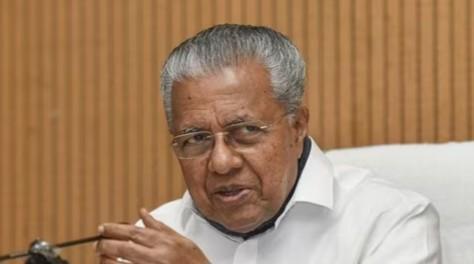
Attack on Federalism: Kerala CM on Bills to Remove Jailed PM, CMs
The recent developments in the Indian political landscape have raised concerns about the federal structure of the country. The Constitution (130th Amendment) Bill, 2025, tabled in the Parliament today, has been criticized by several state governments, including Kerala, for being a blatant attack on federalism and the rights of states. The Kerala Chief Minister, Pinarayi Vijayan, has been vocal about his opposition to the bill, calling it a “blatant attack on federalism” that seeks to “destabilize non-BJP governments by weaponising central agencies and jailing opponents on false charges.”
The bill, if passed, will allow the government to remove the Prime Minister, Chief Ministers, and Ministers arrested or detained for at least 30 days. This move has been seen as a attempt to exert greater control over the states and undermine their autonomy. Vijayan has argued that the bill is a direct attack on the federal structure of the country, which is designed to give powers to the states and protect their rights.
The Kerala Chief Minister has also accused the central government of using its agencies, such as the Enforcement Directorate (ED) and the Central Bureau of Investigation (CBI), to harass and intimidate opposition leaders and governments. He has claimed that the ED and CBI are being used as “tools of political vendetta” to destabilize non-BJP governments.
Vijayan’s comments have been echoed by several other state governments, including those of West Bengal, Odisha, and Punjab. The opposition parties have also come out strongly against the bill, terming it as a “dangerous” and “undemocratic” attempt to undermine the federal structure of the country.
The Constitution (130th Amendment) Bill, 2025, is a significant development in the ongoing political crisis in the country. The bill is seen as a response to the growing power struggle between the central government and the state governments. The central government has been accused of trying to exert greater control over the states, and the bill is seen as a further attempt to consolidate its power.
The bill has also been criticized for its potential to be used as a political tool to target opposition leaders and governments. The opposition parties have argued that the bill is a ploy to silence dissenting voices and undermine the democratic process.
The Kerala Chief Minister has also called for the Congress-led Opposition to come together to fight against the bill. Vijayan has argued that the bill is a threat to the very fabric of democracy and that it is the responsibility of all opposition parties to come together to fight against it.
The current political situation in the country is complex and volatile. The ongoing power struggle between the central government and the state governments has raised concerns about the future of federalism in the country. The Constitution (130th Amendment) Bill, 2025, has been seen as a significant development in this context, and its implications are far-reaching.
In conclusion, the recent developments in the Indian political landscape have raised concerns about the federal structure of the country. The Constitution (130th Amendment) Bill, 2025, has been criticized for being a blatant attack on federalism and the rights of states. The Kerala Chief Minister, Pinarayi Vijayan, has been vocal about his opposition to the bill, calling it a “blatant attack on federalism” that seeks to “destabilize non-BJP governments by weaponising central agencies and jailing opponents on false charges.” The opposition parties have come out strongly against the bill, terming it as a “dangerous” and “undemocratic” attempt to undermine the federal structure of the country.






